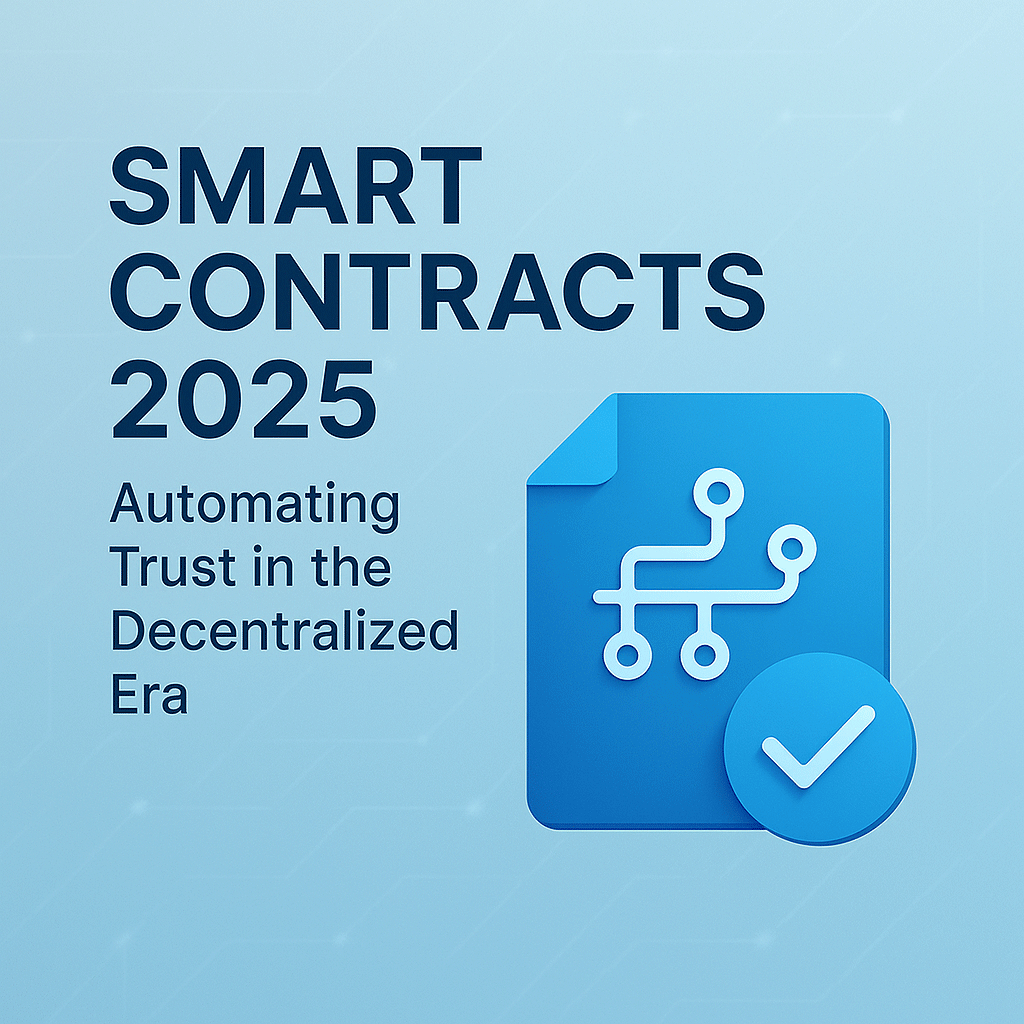Smart contracts have redefined the digital economy by enabling self-executing agreements without intermediaries. As blockchain technology continues to evolve, 2025 is witnessing a new era in how smart contracts are written, deployed, and used across sectors like finance, gaming, logistics, and even legal systems.
What Are Smart Contracts?
Smart contracts are programs stored on a blockchain that automatically execute actions when predefined conditions are met. These contracts remove the need for middlemen, making transactions more transparent, cost-efficient, and secure.
Initially popularized on Ethereum, smart contracts are now available across multiple blockchain ecosystems including Solana, Polkadot, Avalanche, and Cosmos, with varying levels of scalability and cost.
Key Benefits of Smart Contracts in 2025
1. Automation Without Trust
Once deployed, smart contracts run exactly as programmed. This removes human error, manual verification, and the risk of manipulation.
2. Lower Transaction Costs
By cutting out third parties, smart contracts reduce transaction fees and operational overhead.
3. Transparency and Security
Every transaction is recorded on the blockchain and publicly verifiable, which ensures full transparency. Moreover, immutability means contracts can’t be altered after deployment.
4. Cross-Chain Interoperability
In 2025, new tools and bridges allow smart contracts to function across blockchains, enabling broader dApp ecosystems and liquidity sharing.
Use Cases for Smart Contracts in 2025
- DeFi (Decentralized Finance): Managing automated lending, trading, and yield farming protocols (e.g., Aave, Uniswap).
- NFTs and Gaming: Enforcing ownership, royalties, and item transactions (e.g., Axie Infinity, Magic Eden).
- Supply Chain: Tracking goods, automating payments upon delivery confirmation.
- Insurance: Triggering payouts automatically upon weather events or claims verification.
- DAOs (Decentralized Autonomous Organizations): Automating governance, voting, and treasury management.
Smart Contract Platforms in 2025
- Ethereum: Still the most widely used, especially after scaling upgrades and Layer 2 adoption.
- Solana: High-speed, low-fee platform growing in NFT and gaming sectors.
- Polkadot: Ideal for interoperable smart contract applications via parachains.
- Avalanche: Offers subnets for custom contract execution with near-instant finality.
- Cardano: Focuses on formal verification for mission-critical applications.
Languages Used for Smart Contracts
- Solidity (Ethereum, BNB Chain)
- Rust (Solana, Polkadot)
- Move (Aptos, Sui)
- Haskell/Plutus (Cardano)
- In 2025, cross-language compilers are improving to allow easier deployment across chains.
Smart Contract Security in 2025
Security remains a top concern. Rug pulls and logic bugs still cause millions in losses. To counter this:
- Formal verification tools are becoming standard.
- Auditing firms like Certik and Trail of Bits are integrated into launch pipelines.
- Bug bounties are increasingly built into DAO treasuries.
Challenges and Limitations
- Complex logic still expensive to deploy on some chains.
- Governance loopholes can still be exploited.
- User education remains a barrier to adoption.
Conclusion
Smart contracts in 2025 are more powerful, secure, and versatile than ever. They are not just the backbone of DeFi but also expanding into enterprise use cases, gaming, and global governance. As the technology matures, developers and users alike must prioritize robust design, security, and interoperability to realize the full potential of smart contracts.
